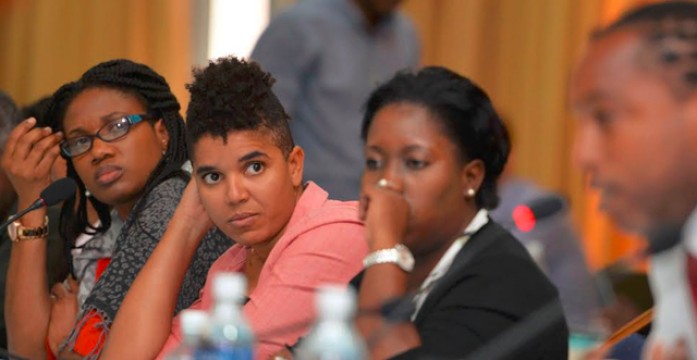St. Kitts will have to look seriously at waste separation if it is to consider waste to energy as an energy and waste disposal alternative. That is a according to Ghanja O’Flaherty, Planning and Operations Engineer at the Solid Waste Management Corporation (SWMC). O’Flaherty recently attended a waste to energy conference in Grenada organized by the SIDS DOCK (a product of the Alliance of Small Island States to provide guidance to small islands states on energy matters); CARICOM via the CARICOM Energy Programme, GIZ (German Society for International Cooperation),
5Cs or CCCCC (Caribbean Community Climate Change Centre) and the Government of Grenada.
“Anything we want to pursue (with waste to energy), separation of waste (will be involved)…You hear people talking about recycling while actually that would involve separating the plastics, metals…and we don’t do that here in St. Kitts at the moment other than some private enterprises,” O’Flaherty said. “Moving forward, that would be an advantage to any method that is chosen so that’s something that we very seriously have to look at,” she added.
She noted that most of the companies showcased at the conference looked at waste to energy using biogas, which was not the initial ambit of the St. Kitts approach when it first broached the idea of waste to energy. “A lot of the companies that displayed, that actually exhibited were biogas companies, which has not been a focus of St. Kitts and our solid waste here. It’s something to explore,” O’Flaherty said. “So I suppose in terms of where it leaves us is…going into a full-on assessment of what we have and what we can do with it.”
Meanwhile, O’Flaherty was pleased to have represented St. Kitts and the SWMC at the conference. The conference looked at the needs of the region in terms of the approach to waste to energy and providing information on waste to energy.
The conference, not only provided much well needed information to Caribbean countries on this very important topic, but presented opportunities for Networking. O’Flaherty was pleased to have had the opportunity to build relationships with her counterparts in other Caribbean countries. “More than anything, I was looking to make contacts across the region because they are countries doing things that we are not. Now that there is a relationship established, we can trade best practices. I can hear what they are doing well; I’m happy to share what we are doing well and hopefully learn from each other and I think this has given us a real good opportunity to do so,” O’Flaherty said.

